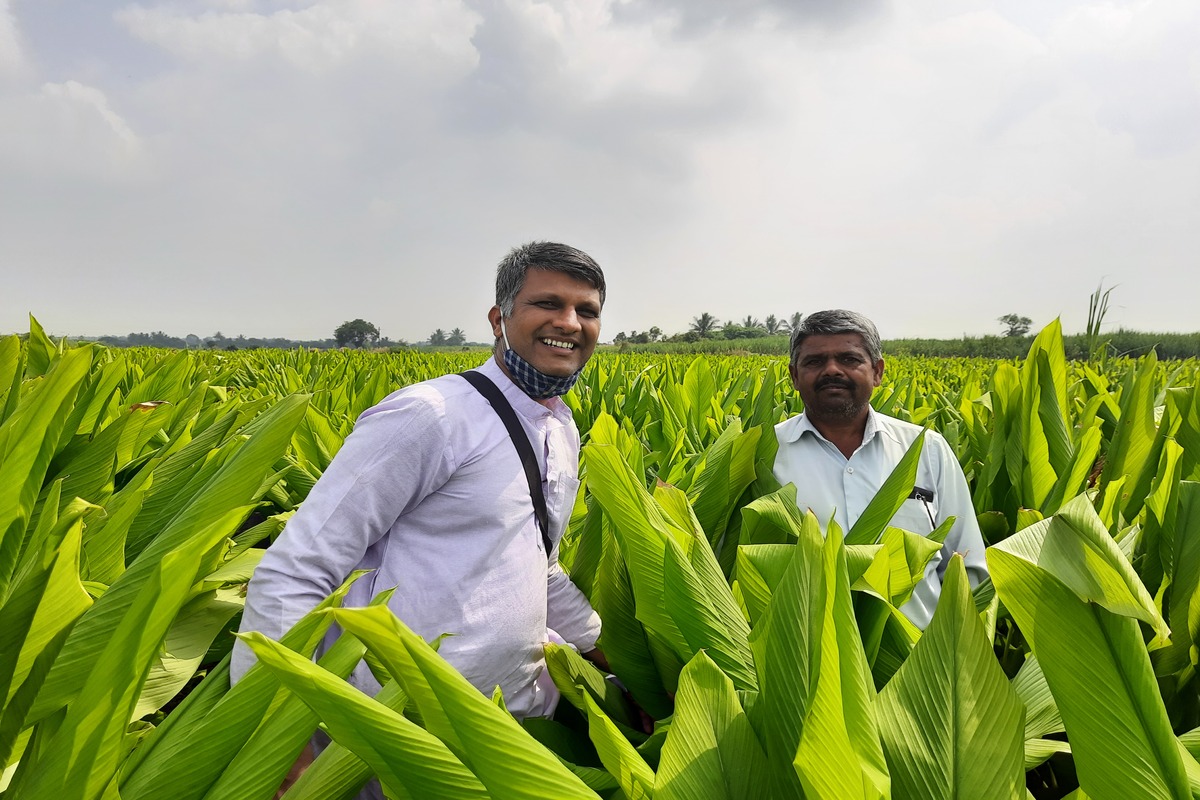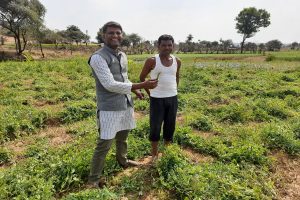Quintessential Kolkata top fast food picks
Explore the vibrant flavors of Kolkata's street food scene with our top picks, from succulent Kathi Rolls to irresistible Phuchka. Indulge in the culinary magic of the 'City of Joy.'
Slow Food includes organic food ingredients and is closely linked to the idea of organic and unprocessed food. More than the food, the concept also advocates the idea of enjoying the meal slowly in a relaxed manner, preferably in the company of friends, companions, family and colleagues.

Slow Food includes organic food ingredients and is closely linked to the idea of organic and unprocessed food.
A unique ‘Slow Food’ movement, then known as Arcigola, started in Rome in the late 80s when people protested the launch of an American fast food giant. The movement has since spread beyond Europe and is gradually taking over the world. Udaipur-based Rohit Jain, CEO and founder of Banyan Roots, initiated the India chapter of ‘Slow Food International’. He speaks at length about the concept of ‘Slow Food movement’ with Rabbi Calra of The Statesman.
What is Slow Food?
Slow Food, as the name suggests, is the opposite of fast food. Where fast food is prepared using processed ingredients that contain preservatives and artificial colouring, Slow Food is prepared using traditional ingredients and cooking methods. Slow Food includes organic food ingredients and is closely linked to the idea of organic and unprocessed food.
Advertisement
More than the food, the concept also advocates the idea of enjoying the meal slowly in a relaxed manner, preferably in the company of friends, companions, family and colleagues. It is a wide concept and needs the attention of more people.
What prompted you to take interest in the Slow Food movement, and how did you get associated with it?
My grandfather and forefathers were farmers, who hailed from Banswara district. My father migrated to Udaipur. I was always intrigued by the rural people migrating to cities in large numbers and thought what could happen if everyone migrates to the cities. My interest in traditional food motivated me to work towards creating awareness about organic farming and food. So, I started working on my own venture on the same lines in 2010.

In pursuant with the objective, I met farmers and tried to understand how to develop an organic food ecosystem. In 2014, I came in contact with Kumud Dadlani, who was a representative of the Slow Food movement in India. She had studied Gastronomy in Italy, from where she got to know about the movement. She motivated me to attend a conference of the Slow Food movement and so I traveled to Italy and attended the conference,Terra Madre, meaning Mother Earth.
I met representatives from about 125 countries and also came in contact with other organic food enthusiasts, who were representing India. I was thrilled to be part of this food revolution and soon I joined the Slow Food movement, as a convivial member in Udaipur.
How are you promoting the Slow Food movement?
We organise several events at clubs, schools and cultural fairs. We started an event called Food Mela, where we promote traditional food and recipes. In Udaipur, there are now more than 30 people associated with the movement, including farmers, ayurvedic healers, homeopathic doctors, nutritionists, professors and chefs. Our members keep researching and finding traditional recipes coming through generations.
Udaipur is known for growing several varieties of maize crop. A few years ago, we studied various varieties of the maize crop and developed several traditional recipes. We even dedicated an event to maize, called Maize Mela, for the awareness and promotion of these recipes. The mela was a great success, and we got in contact with more people. So, the promotion part is entirely done through the organisation of such events as we do not conduct other marketing activities, such as advertisements or promotions.
How are people responding to the concept of ‘Slow Food’?
People who visit our events praise the movement a lot. It helps them to know about organic farming and the produce which is available. Today’s hectic lifestyle is forcing people to adopt organic foods. More and more people are acknowledging the benefits of slow food, but there’s still a lot that needs to be done. In the past years, we have come in contact with about 10,000 families through our events, of which about 20% would be regular consumers of organic produce. We need to increase the number. Most people find organic foods costlier. The reason being our local farmers lack knowledge and awareness about organic farming. If more and more farmers adopt the organic farming techniques, the cost of organic food items will come down and more people will be able to adopt the Slow Food lifestyle. In India, we also have to start a movement in local dialect and we have shared this input with Slow Food International. We are still reaching out to more and more people everyday and trying to create awareness about the organic lifestyle.
What change have you seen in all these years with regard to people’s receptiveness to organic food?
People have definitely become more receptive towards organic food. I have been organising events for the promotion of organic and traditional foods for more than 10 years and I personally have witnessed a huge difference in people’s perception. Earlier, we used to put in a lot of effort describing people about the concept of organic food, but now things have changed. Most of the urban population knows the benefits of healthy eating and organic food. They just do not know where to buy such items from. To further penetrate into the market, we stopped our direct selling of the organic food items and we onboarded female entrepreneurs, who were willing to sell these items. We organised ladies kitty-parties and also reached out to several clubs, for identifying women who would be interested to become our sellers. Now, we are a strong local community, working for promotion of organic food, involving farmers, tribals and sellers.
Do you have any corporate and institutional tie-ups?
We have tied up with various NGOs around the state of Rajasthan and we supply organic food to these groups. We are closely associated with Mangarh Agro Producer Company Limited and Vaagdhara for providing organic food items.
How are you reaching out to young children and school kids for awareness about Slow Food?
We reach out to local schools and organise workshops and events at their level. We share the story of food with school students, creating awareness about how food is digested and how traditional food is a healthier option. We also conduct live kitchen activities and show the children how to cook traditional recipes. Some schools also allow us to take the students on field trips, where we give them a visit to the organic farms in our vicinity. We understand how important it is for young children to be aware about the benefits of organic and traditional food.
Advertisement